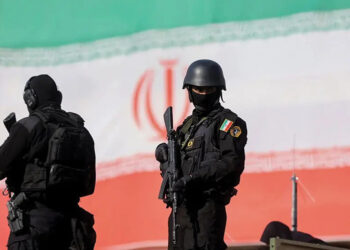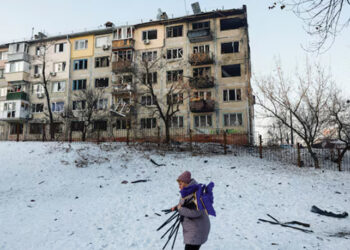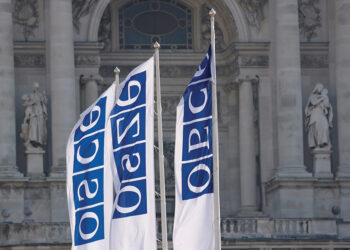I am Georgian, but I cannot recall during my Soviet or post-soviet childhood such a homophobic environment as there is today. I remember how private this subject was and how it was never mentioned openly. I never saw any violence or stoning of gays around me, and I can openly say that the country’s secular system was the reason for it.
When the Soviet Union was no more, and Georgia entered the ugly years of the 90s, the Church was quite astute and quick to make use of the situation. They made sure the women who had become too liberal and powerful returned to where they belonged (at home), and that any liberal and multicultural views were demonized. This was not an issue for me, because I left Georgia in the 90s and returned post-Rose Revolution. Nothing prepared me for what I then saw done to the minorities in the beautiful, multicultural, multinational, multi-religious place I had grown up in and cherished.
The first serious shock and despair for me came on May 17, 2013, when an anti-homophobia rally dedicated to the International Day Against Homophobia was met by thousands of protestors who were allowed to break through a police cordon and chase the participants, beating and throwing stones at them. I was in Dubai on holiday when I saw it playing out on TV, and the first question I got from my Emirate friends was: “Hold on, Helena. We thought Georgia was the best place for freedom of sexuality?”
They were just as upset and shocked as I was, but I knew deep down it wouldn’t end there. The Church, led by long-time leader Ilia II, declared that same day, May 17, as the day of ‘Family Purity’, thus deepening the hate and aggression towards the LGBTQ+ community, which is very small in Georgia and hidden for obvious reasons. My gay friends are married or live abroad, or are simply quiet about it. My lesbian friends are divorced and/or hiding their partnerships. Transexuals are often beaten and killed. There is little hope for them.
This is happening in a country where the statistics speak for themselves regarding heterosexual marriages, crimes against children, women and youth; where rape, abandonment and forced marriages are common, regardless of the culture or ethnic minority. It’s hard to go into the details, but the everyday criminal chronologies on TV show how difficult it is here for women and children, let alone the homosexual minorities.
The death of cameraman Lekso lashakrava, who was violently attacked while covering the anti-LGBTQ protests in 2021 and died at home the following day was blamed on a drug overdose by the Interior Ministry, despite the beating he received during the protests. Police seized his corpse from his family to conduct an autopsy.
I was hoping that Georgia would learn its lesson on its way toward EU status and joining the North Atlantic Alliance, but on the sunny day of this past July 8th, thousands of anti-LGBTQ protests broke up another Pride festival in the Georgian capital, Tbilisi, though this time thankfully ending without any casualties – “just” looting, breaking of property and men generally behaving in a manner usually expected of wild animals.
“Nobody was harmed during the incident, and police are now taking measures to stabilize the situation,” Alexandre Darakhvelidze, the deputy interior minister was proud to announce later. I witnessed the shocking actions of the rent-a-mob with my own eyes, and there was no need to make this announcement, as the harm had already been done.
“Why are you here?” I asked a small group of protesting ladies who were shielding themselves from the summer heat on Saturday. “It’s against God,” said one. “It’s not natural to pervert our children’s lives,” said another.
Those who were very old and could not run were standing by and verbally encouraging the younger element to attack, and they were doing their job aggressively, at one point ripping and burning a rainbow flag.
Not all the aggressors were nasty. One lady gave me a bottle of water. But I felt sorry for them; even if they were branded as a rent-a-mob, they are still very dangerous and had gone too far in their phobias.
These are the people who hate anything foreign and unknown; they blame America for their misfortunes, while family members send them remittances from the US or EU; they hate non-Christians, while their capital is full of multicultural areas where people have coexisted for centuries. Their history is not compatible with their behavior, there is no excuse for their irrational thinking regarding homophobia, which only raised its ugly head recently.
Psychiatrist Natia Panjikidze noted that “Georgians often say that gays and lesbians ‘can do whatever they please at home’ [as long as they don’t take it out in public], which is a clear indication that homes are also controlled by the system,” hence, she says, it is nonsense to keep repeating this absurd comment as if it is acceptance.
Georgia aspires to join the EU. In March, our youth made the government drop the Russian-style bill on “Agents of Foreign Influence” and pass laws against discrimination and hate crimes, and yet homophobia and xenophobia still thrive. My good friend said a few days ago how much she hated that side of Georgia. I cannot disagree. I’m not too fond of that side of Georgia either!
Op-Ed by Helena Bedwell














